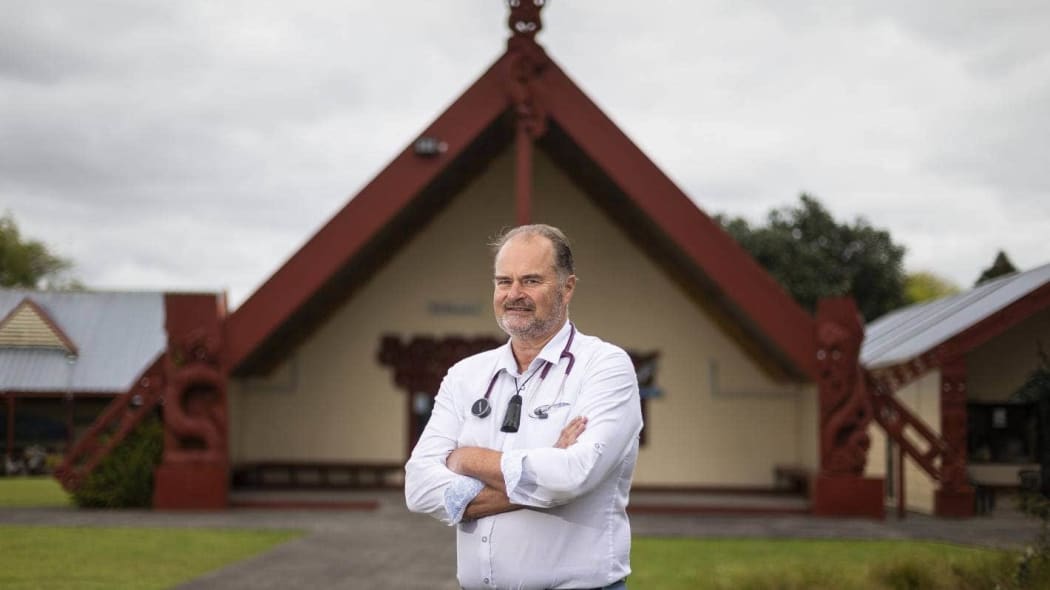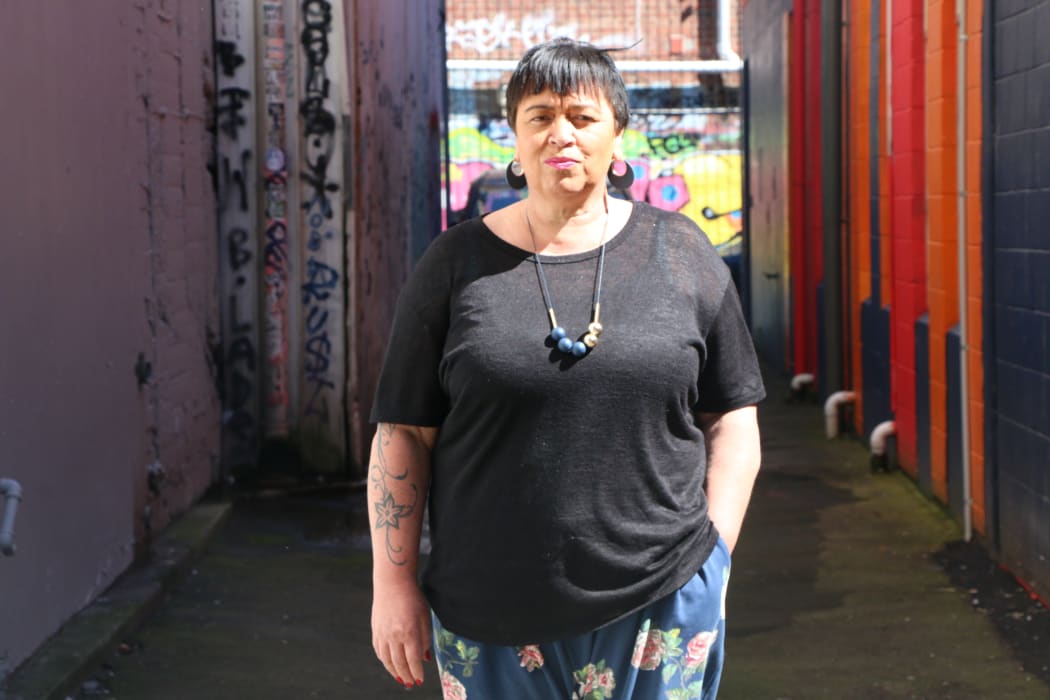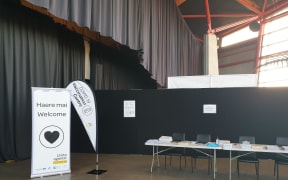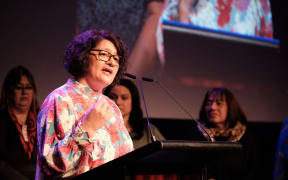Māori health professionals are warning of the threat the Covid-19 Delta variant could pose for Māori and Pasifika communities, and are urging more to be done to address equity when the vaccine rollout resumes.

Dr Rawiri Jansen, co-leader of Te Rōpū Whakaurutā - The national Māori Pandemic group. Photo: STUFF/ Alden Williams
Iwi and other Māori organisations swung into action across the motu on Wednesday, with communities concerned the confirmation of Delta left them acutely vulnerable.
Small communities locked down, whānau groups distributed aid, and talks were underway about what to do to protect rohe, kuia and kaumatua.
Dr Rawiri Jansen, co-leader of Te Rōpū Whakaurutā - The national Māori Pandemic group, said it was a challenging time.
"To be blunt, Māori populations are the least vaccinated population in New Zealand and the Pacific population is the second least vaccinated," Jansen said.
"It's a challenging time for us to have this outbreak because Delta is super transmissible ... It's happening at a time when we're less vaccinated then other populations"
Those factors posed a very real threat to Aotearoa, Jansen said.
But it was a threat communities seemed well aware of, with many swinging into action to lock down and help whānau.
However, iwi roadblocks in isolated areas, while being considered, are yet to return.
In Wellington, teams from Kahungunu ki Pōneke Community Services worked through the night as they tried to reach some of the city's most vulnerable whānau.
Chief executive Ali Hamlin-Paenga said nine teams were on the city's empty streets on Wednesday, delivering food and hygiene parcels and ensuring people had enough to endure a lockdown.

Ali Hamlin-Paenga. Photo: RNZ / Leigh-Marama McLachlan
The social agency said it had been in touch with about 250 whānau across the Wellington region by Wednesday afternoon, mostly by phone, but also utilising Zoom and physical visits.
Hamlin-Paenga said her agency had seen a surge in demand for help and pastoral support.
"Do they need medication? Is that all up to date? Have our people got power? Are they connected to the messages? There are so many things we have to check in on," she said.
Kahungunu ki Pōneke had not received any additional grants for its work in alert level 4, but they had been approached by government agencies and Hamlin-Paenga was confident it might come later.
Up the East Coast, in Uawa Tolaga Bay, Rhonda Matete was hunkering down in a house of eight, using it as a chance to recharge, to finish mahi around the house and spend quality time, she said.
"Whānau are taking full advantage of social media to stay connected and keep each other's spirits lifted with a good laugh," Matete said.
"We are just doing the do and always smiling no matter how taumaha the kaupapa."
She said local shopkeepers had organised themselves, putting out a pānui for any whānau who need kai or other necessities.
"I love how our people always come together to manaaki each other."
Still, Jansen said while lockdowns were the best means of protection for now, more needed to be done to target the vaccine rollout to vulnerable communities, like Māori and Pasifika, when it resumed.
Rangatahi Māori needed to be vaccinated far sooner than planned, he said.
"It's probably going to travel in young people who will be mostly asymptomatic so it might travel quite a distance into communities before we can get the effect of a really great lockdown.
"We have to focus our efforts in the vaccination programme and we need to really deliver that to Māori and Pacific families"
GP and professor of Hauora Māori, Dr Sue Crengle, said while vaccination rates for Māori over the age of 55 were great, there remained a gap for those aged under 55.
"We're a little bit more vulnerable because of that," Crengle said.
"I think it's really important that we try and get as many Māori and Pacific and others vaccinated as quickly as we can."
The government has said the gap between Māori who have had their Covid-19 vaccines and non-Māori has been closing in recent weeks, and will close further when the rollout opens to younger age groups.
Prime Minister Jacinda Ardern today said equitable distribution of the vaccine was a priority.
"We've already had a real focus in a vaccination program around what we can do to lift rates as we move through," she said.
Jansen said Māori and Pasifika communities were eager to get vaccinated, they just needed the delivery and response from the government.
"Vaccine acceptance is surging everywhere and we can see that," he said.
"Currently 71 percent of Māori over the age of 65 in the Auckland region have been vaccinated so there is no hesitancy.
"If we give good information and make it accessible to book, we're going to get a great result."
This is an official Covid-19 ALERT.
All of New Zealand is now at Covid-19 alert level 4.
The alert level will be reviewed after 3 days for all areas EXCEPT Auckland & Coromandel Peninsula which is likely to remain at level 4 for an initial period of 7 days.
A community case of Covid-19 has been identified.
Stay at home where possible & follow the Alert Level 4 guidelines. This will stop the spread of Covid-19 and SAVE LIVES.
Everyone is asked to:
Wear a mask and keep a 2 metre distance from others whenever you leave your home.
If you are sick, call your doctor or Healthline on 0800 358 5453 for advice about getting tested.
Keep on scanning QR codes whenever you leave your home.
Practice good hygiene - wash hands often.
Services including supermarkets, pharmacies, clinics & petrol stations will stay open at Alert Level 4.
For more information on Alert Level 4 go to [the government website www.covid19.govt.nz]
***
RNZ is the statutory Lifeline Utility responsible for radio broadcasting under the Emergency Management Act 2002 and it has a memorandum of understanding with Government which has been activated to help deal with potential health issues related to the pandemic. RNZ's Lifeline Utility obligations do not affect our editorial independence as a public media organisation or the rigour of our news gathering and reporting operations.
As New Zealand's Lifeline Utility radio broadcaster, RNZ is required to maintain essential public information channels and news during times of national emergency and we are committed to supporting all New Zealanders.
We are also committed to looking after the health and well-being of our staff.
RNZ will continue to provide essential information services - broadcasting and publishing critical public service announcements on air, on our website and via social media channels. Comprehensive news will be available on air and via our website and digital services.
If necessary RNZ Concert and RNZ Pacific will carry news and information from RNZ National. Parliament will continue to be broadcast on the AM network when the House is sitting. As the country's public service media organisation, RNZ is committed to supporting all New Zealanders.
Kia Kaha - Stay Strong






